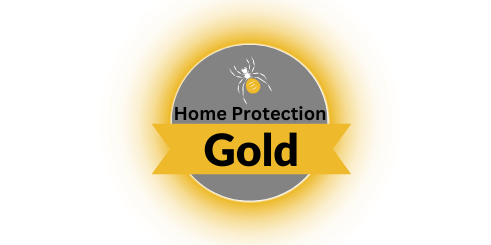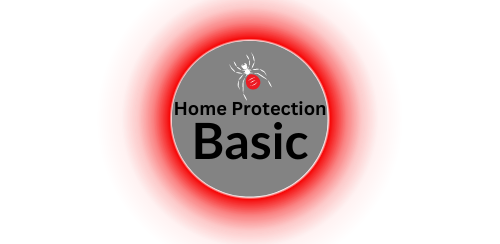Ant Control - What you need to know about Hiring An Ant Exterminator for Pest Control Service
If you live or work in New Jersey you’ve likely encountered one of the six common ant species in the area. Among the most frequently seen ants are carpenter ants, pavement ants, acrobat ants, odorous house ants, and citronella ants. Each of these species has unique behaviors and nesting preferences, making it important to understand what draws them indoors and how to prevent them. By recognizing ant behavior, taking proactive prevention measures, and knowing when to call in professional pest control, you can protect your property from these persistent pests and ensure effective treatment if an infestation arises.
What Are Ants?
If you live or operate a business in New Jersey, you’ve likely encountered some of the most common ant species in the area. These include carpenter ants, pavement ants, Acrobat ants, odorous house ants, and citronella ants. Each type has unique behaviors that make them challenging to control without the right approach.
To effectively protect your home or business from ants, it’s important to understand their habits, identify preventive measures, and seek professional ant control options. At
Resolve Pest Management, we focus on proactive prevention and tailored treatment to keep these invasive pests away from your property. Learning about the behavior of ants and partnering with a trusted pest control provider can help you keep your space ant-free year-round.
How Do I Get Ants?
Ants are constantly on the move, seeking food, water, and shelter, making even the cleanest properties in New Jersey vulnerable to infestations. While many of these food and water sources are within our control, others are not—such as nectar, seeds, and fungi that naturally attract ants. Due to their frequent movement and opportunistic habits, DIY methods often fall short in controlling an ant problem.
Resolve Pest Managements' ant control experts understand the habits of each ant species in NJ, which is crucial for effective extermination and long-term ant prevention. Ants are cold-blooded insects, and their movement patterns change with the seasons. During the warmer months, ants are active, searching for food and expanding their nests. However, when temperatures drop, they look for warm shelter—often finding their way into homes or buildings that are not adequately secured.
A seemingly minor gap or crack can provide ants access during the colder winter months, creating a wintertime ant infestation. Though ants are more visible during the warmer months, it’s important to stay vigilant year-round to minimize the chances of a colony making your property its new home. For professional ant control and to keep ants out for good,
contact Resolve Pest Management today.
What Are the Effects of Ants In and Around Your Home or Business?
Ants can cause a variety of issues in and around your New Jersey home or business, depending on the species present. Due to their small size and constant movement, ants can pick up bacteria from unhygienic areas like garbage or sewage and track it into your space, leading to potential health risks. This makes ant infestations particularly concerning for food establishments, healthcare facilities, and residential homes.
While most smaller ant species, like odorous house ants, do not bite, larger species such as carpenter ants can be much more problematic. Not only can carpenter ants inflict painful bites, but they also pose a significant threat to the structural integrity of properties by tunneling into wood to build their nests. This type of damage can become extensive if left untreated.
Historically, carpenter ants have been a persistent problem in New Jersey, with studies in the 1980s revealing that a large number of urban shade trees were infested with these ants. Unfortunately, carpenter ants remain a prevalent issue throughout the state to this day. According to the Rutgers New Jersey Agricultural Experiment Station (NJAES), carpenter ants continue to pose a significant risk due to their nesting behaviors
(Rutgers NJAES).
How Long Can Ants Live?
In New Jersey, ants can live anywhere from a few weeks to several years, depending on several factors. The species of the ant, environmental conditions, exposure to natural predators, and their role within the colony all influence their lifespan. For example, queen ants can live up to 30 years, whereas worker ants generally live only a few weeks to a few months. Understanding these different life spans is essential for effective pest control. At Resolve Pest Management, we use this knowledge to provide targeted treatments that effectively eliminate ants at all stages of their life cycle, ensuring thorough and lasting results.
How Do I Prevent Ants in my Home or Business?
Ant prevention requires a comprehensive approach to ensure the best possible results. Experts recommend not leaving food, trash, spilled liquids, standing water, or crumbs around your home or business. Although these aren't always required to attract ants, minimizing food and water sources helps make your property less inviting to pests.
In addition to preventive measures, professional ant pest control is the best way to achieve lasting results. Proper identification of the ant species is essential, as different ants require different treatment methods. For example, managing pavement ants outside involves a different strategy than dealing with carpenter ants nesting inside your home or business in New Jersey.
Ants With Wings
Winged flying ants, also known as swarmers, are mature male and female ants whose primary role is to leave their colony and reproduce. These ants take flight as the weather starts warming up, usually in spring and early summer, especially in areas with high humidity. In New Jersey, you’re likely to notice swarms of flying ants during this time as they emerge to establish new colonies.
Swarming often occurs in large numbers, which helps deter predators and increases the chances of successful mating. After mating, the male ant dies, while the fertilized female finds a suitable spot to establish her new colony. This female, now the queen, will lay eggs and begin the process of building a thriving ant colony.
Are Flying Ants Dangerous?
Flying ants share similar characteristics with their non-winged counterparts. For example, common sugar ants, which do not bite or sting, behave the same way even when they are in their winged form. This means that flying sugar ants are harmless to humans.
However, some species of flying ants, such as flying carpenter ants, do have the potential to bite if they feel threatened. It’s important to know that as long as you do not disturb a swarm during their mating process, there’s no need to worry about being bitten by flying ants. They are focused on expanding their colonies rather than causing harm.
Flying Ants vs. Termites. The Difference:
Flying ants and termites look similar when they swarm, which can make them easy to mix up. However, there are some key differences between these two insects that can help you identify which one you’re dealing with.
1. Wing Differences
Flying ants have two sets of wings, but the front wings are larger than the back wings. Termites, on the other hand, have four wings that are all the same length.
2. Antennae Shape
Look at the antennae: flying ants have bent or elbowed antennae, while termites have straight antennae.
3. Body Shape
Flying ants have a noticeable, pinched waist that divides their body into clear segments. Termites have a straighter, more tube-like body without a pinched waist.
How to Be Sure
If you see swarms of winged insects around your property and aren't sure if they’re ants or termites, calling a pest control professional is the best way to know for sure. The experts at Resolve Pest Management can quickly identify the insect and provide a proactive plan to get rid of them and prevent further damage to your home or business. Knowing these differences can help you stay ahead of pest problems and protect your property.
Protecting Your Home or Business From Ants With Resolve Pest Management
Resolve Pest Management provides expert pest control services to effectively keep pests from invading your New Jersey home or business. Using Integrated Pest Management (IPM) techniques, we address the core of the pest problem and target ants directly at their source. Our IPM approach ensures that pest control solutions are applied in a way that minimizes risk to people, pets, and the environment.
Get in touch with Resolve Pest Management today to discuss how we can protect your property from pests and keep your space safe and comfortable.
STEP 1
Schedule
Call today at (732) 527-5770 to schedule your service. We can often schedule your NJ pest control service either the same or next day.
STEP 2
Treatment
A skilled pest control technician will inspect both the interior and exterior of your property to provide a customized pest control plan to manage current and future pests. Depending on what the technician finds we will recommend additional treatment services or repairs to prevent pest entry.
STEP 3
Peace of mind
Gain peace of mind knowing an expert inspected and treated your home for pests and rodents. After each service follow up on our recommendations to help prevent pests from entering your home or inhabiting areas outside, increasing protection keeping them far away from sight.
$39.50
per month
*Initial fee applies*
What's Included:
- Year-Round Pest Protection
- 4 Scheduled Services
- Free callbacks
Covered Pests:
- Ants (includes carpenter ants)
- Spiders
- Crickets
- Pill bugs
- Pantry Weevils
- Silverfish
- Earwigs
- Centipedes
- Roaches
- Mice
- Rats
- Wasps (nest must be attached to the structure)
- Cobweb removal along 1st level eaves

$47.50
per month
*Initial fee applies*
What's Included:
- Year-Round Pest Protection
- 4 Scheduled Services
- Free callbacks
Covered Pests:
- Ants (includes carpenter ants)
- Spiders
- Crickets
- Pill bugs
- Pantry Weevils
- Silverfish
- Earwigs
- Centipedes
- Roaches
- Mice
- Rats
- Wasps (nest must be attached to the structure)
- Cobweb removal along 1st level eaves
$79.50
per month
*Initial fee applies*
What's Included:
- Year-Round Pest Protection
- 6 Scheduled Services
- Free callbacks
Covered Pests:
- Ants (includes carpenter ants)
- Spiders
- Crickets
- Pill bugs
- Pantry Weevils
- Silverfish
- Earwigs
- Centipedes
- Roaches
- Mice
- Rats
- Wasps (nest must be attached to the structure)
- Cobweb removal along 1st level eaves
Why sign up for a Home Protection Plan?
A common question we are often asked is : What's the difference between a one time pest control service and a home protection service?
One time service is 1 scheduled service that typically includes a 60 day retreatment warranty but treats the current pest problem without ongoing treatment.
Home Protection Services are meant to find and prevent current pest & wildlife issues. Include free call back services if needed between scheduled service and on going prevention. Lets be honest. How many times a year will you enter your own crawlspace, basement, or walk around the exterior of your home with your eye on pest or wildlife control issues in mind?
We inspect, diagnose, offer advice, and prompt service throughout the year for a lower cost rather than multiple one time services with higher costs.
Request your free quote
Why Choose Resolve Pest Management for Ant Control?
- Highly trained professionals specializing in pest control and wildlife removal
- Advanced techniques and treatments for maximum effectiveness
- Safe and family-friendly solutions
- Customized treatment plans tailored to your specific needs
- 100% Satisfaction Guarantee for your peace of mind
- Prompt and reliable service to quickly eliminate pest
Contact Resolve Pest Management today and let us be your trusted partner for Pest & Wildlife Control from your life. Call 732-527-5770!






